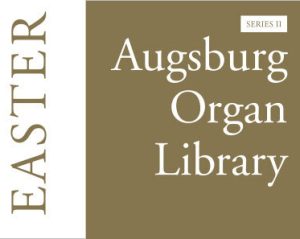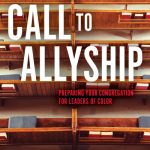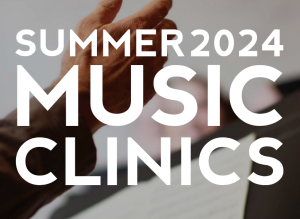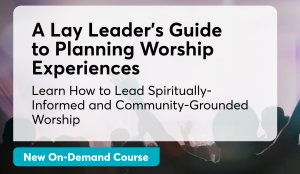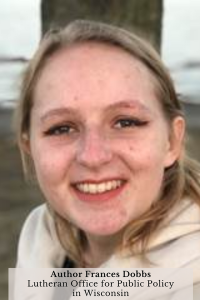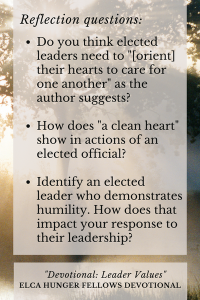The following is taken from the 2024 ELCA World Hunger Lent Study. The full resource can be ordered as a hardcopy or downloaded as a PDF in English or Spanish at the link here.
Week 2 — Transfiguration
•••
Genesis 17:1-7, 15-16
Psalm 22:23-31
Romans 4:13-25
Mark 8:31-38 or Mark 9:2-9
This week in Lent we continue exploring the places and moments in which we encounter God, reflecting on transfiguration as recounted in Mark 9:2-9. Here God’s manifest presence before the disciples demonstrates God’s presence in the life of creation, especially in times of injustice.
“Transfiguration” is an odd word telling an odd story. The word comes from two Latin roots — “trans,” meaning “across,” and “figura,” meaning “shape” — so it indicates a change in shape or form. Its occurrence in this week’s reading from Mark is one of the few times it appears in the Christian Scriptures.
The story is a little strange. Jesus takes Peter, James and John up a mountain. There he is revealed in all his glory, in dazzling clothes, with the spirits of Elijah and Moses beside him and God claiming him as God’s own son. Curiously, this experience of Jesus’ divine glory occurs immediately after his long speech about the suffering he will soon endure on the cross. Is it any wonder the disciples are depicted as confused?
Peter is often portrayed in the gospels as well-intentioned but foolish, a far cry from the confident leader he will become in the early church. In Mark’s story, Peter just doesn’t get it. Amid this mystical experience on a mountaintop, Peter, like some rabid suburban developer, suggests, “Hey, let’s build some houses and just stay.”
But Peter may not be quite as dense as we readers first assume. Peter is the one who reminds us that, even during a mountaintop experience, we never cease to be human. Peter is the one who says, “Jesus, I know your clothes are all shiny, and it looks like you got some ghosts with you, and yeah, I hear God talking, too, but we’re all up on top of a mountain right now, and if we’re going to spend any time here, we’re going to need some shelter.” Peter’s reaction isn’t one of fear or stupidity. It’s the reaction of a human being who can’t forget the physical realities that continually impinge on even the deepest spiritual moments.
Like Peter, we are confronted by physical realities that we cannot ignore, even as we experience a profound spiritual crisis of yearning for the day when God will wipe away every tear from our eyes. Like Peter on the mountain, we need to be brought into that ecstatic reality where the presence of God among us is revealed. But also like Peter, we can’t just stay in that moment, ignoring the reality of lived, physical need. We must have a different kind of faith, a faith that refuses to separate transfiguration from transformation, to ignore people around us who are assailed by injustice, disease and violence. We need a faith that captivates, motivates and activates us to respond boldly and recklessly when God invites us to be part of the transformation being enacted for all creation. In the event of transfiguration we encounter God where the physical and the spiritual intersect. New Testament scholar Dorothy Lee puts it well:
[T]he transfiguration is not an other-worldly narrative, disconnected from the body and ordinary human experience. On the contrary, it is precisely Jesus’ transfigured body that discloses the face of God and the hope of God’s future. … The transfiguration on the mountain is the meeting-place between human beings and God, between the temporal and the eternal … between everyday human life — with all its hopes and fears — and the mystery of God.[1]
Peter’s suggestion of building shelters doesn’t seem all that far[1]fetched when we recognize that Jesus never ceases to be a physical human being, even as the transfiguration discloses him as also divine. Peter isn’t missing the story. According to Lee, the story is really about him — and us.
To encounter God in transfiguration is to experience those moments when our perception is opened up radically to the presence of God in our midst. Jesus’ transfigured body births a transfigured faith — a faith that holds in tension the holy and the ordinary, the spiritual and the physical. The story of the transfiguration in Mark isn’t the story of Jesus experiencing his own divinity. Nor is it the story of some important consultation Jesus had with Moses and Elijah. We don’t even know what they said! Rather it is the story of the disciples encountering God in their own physical midst, represented by Jesus’ body and clothing, and in their own history, as represented by Moses and Elijah. It is the story of a faith that opens them to encounter God in their past, present and future, as Lee suggests.
What does this mean for us today? What does it mean to live with a transfigured faith? For over three years Church World Service (CWS), with support from ELCA World Hunger, has provided child protection services to unaccompanied children in Bosnia and Herzegovina. Living in a foreign land without parents or relatives by their side, these vulnerable children are on a difficult journey, trying to reach a better future. Many of them have come to live by a simple but devastating principle: “Do not trust people.” They build walls around themselves to keep safe from those who would take advantage of them, but these walls also bring anxiety, depression and a deep skepticism of adults or agencies trying to help them.
One of the youth helped by CWS is Ahmed (name changed for privacy). Ahmed left his home in Burundi two years ago, relying on money his parents had raised for him to travel to Croatia. When CWS met him, he had been living in Bosnia and Herzegovina for almost a year. “I left with six friends, all from Burundi,” he says. “We watched hungry people every day [in Burundi], and we were among them. I am the oldest, so I am responsible for my brothers. My father is sick, so he cannot work. I need to help them.”
Along the way Ahmed faced steep challenges, including physical violence and intimidation by police at the Croatian border. “Go back where you came from!” they yelled as they pushed him. “How can I go back,” Ahmed says, “when my family’s survival depends on me going forward?”
Ahmed’s story is, tragically, not unique. Like many others, he carries the weight of his journey, his yearning for home and his frustrated hope for a future in Europe. By the time CWS staff met him, Ahmed was making his ninth attempt to enter Croatia. After providing him with whatever help they could, they watched him go, hoping that, this time, the journey would be successful.
A transfigured faith — shaped by an encounter with the God who transforms our world and our perspective — changes us. To encounter Jesus transfigured is to remember that God has entered human history, that God plays a role in the story of unaccompanied children. But encountering Jesus transfigured also means remembering the physical as well as the spiritual, to say, with Peter, “We should build some shelter here.” Ahmed’s fears and disappointment don’t vanish just because God is part of his story. Nor are Ahmed’s tired feet miraculously soothed.
To carry a transfigured faith into the world, to bear witness to our encounter with God in transfiguration, impels us radically outward to seek God in the real people and events around us. This faith is grounded in the belief that God is present with us through the Galilean carpenter — and through a Burundian child. All too often, migrants such as Ahmed are viewed as nothing more than a burden or an intrusion: “Go back where you came from!” he was told. Yet a transfigured faith reminds us that our neighbors are more than burdens or disturbances, more than even their own need; to us they are the presence of God, just as we are to one another.
Encountering God in transfiguration is more than an odd event on a mountaintop 2,000 years ago. God transfigures our faith and perception, opening us to recognize God in our neighbors and to perceive God active in our history. After Peter, James and John reach the mountaintop, there is no going back. Jesus is no ordinary teacher they are following. This is something new, something miraculously and wonderfully different. Here is the unveiling of divinity, transforming their lives and how they view the world.
As we journey together spiritually through Lent, let us do so with a transfigured faith, remembering the difficult, dangerous, physical journeys so many of our neighbors are on and remembering our call to be present with them and one another, to be changed by the presence of God within them.
Reflection Questions
How would you have reacted if you were on the mountain with Peter, James and John?
With the transfiguration of Jesus, the disciples come to see Christ’s divinity. How might this have changed their understanding of what it meant to be a disciple?
How does a transfigured faith, recognizing the ways God is present in our world and one another, change us?
How can the church confront and change people’s negative perception of neighbors such as Ahmed? What difference might this make?
Semana 2 — Transfiguración
•••
Génesis 17:1-7, 15-16
Salmo 22:23-31
Romanos 4:13-25
Marcos 8:31-38 o Marcos 9:2-9
Esta semana de la Cuaresma seguimos explorando los lugares y momentos en los que nos encontramos con Dios, y reflexionamos sobre la transfiguración tal y como se relata en Marcos 9:2-9. Aquí la presencia manifiesta de Dios ante los discípulos demuestra la presencia de Dios en la vida de la creación, especialmente en tiempos de injusticia.
“Transfiguración” es una palabra extraña que cuenta una historia extraña. La palabra proviene de dos raíces latinas: “trans”, que significa “a través”, y “figura”, que significa “forma”, por lo que indica un cambio en el aspecto o la forma. Su aparición en la lectura de Marcos de esta semana es una de las pocas veces que aparece en las escrituras cristianas.
La historia es un poco extraña. Jesús lleva a Pedro, Santiago y Juan a una montaña. Allí se revela en toda su gloria, con ropas deslumbrantes, con los espíritus de Elías y Moisés a su lado y Dios lo reclama como su propio hijo. Curiosamente, esta experiencia de la gloria divina de Jesús ocurre inmediatamente después de haber dado su largo discurso sobre el sufrimiento que pronto soportará en la cruz. ¿Es de extrañar que los discípulos sean representados como confundidos?
Con frecuencia Pedro es representado en los evangelios como bien intencionado pero tonto, muy distinto del líder seguro en el que se convertiría en la iglesia primitiva. En el relato de Marcos, Pedro simplemente no entiende. En medio de esta experiencia mística en la cima de una montaña, Pedro, como un entusiasta desarrollador suburbano, sugiere: “Oye, construyamos algunas casas y quedémonos”.
Pero es posible que Pedro no sea tan bobo como los lectores asumimos en un principio. Él es quien nos recuerda que, incluso durante una experiencia en la cima de una montaña, nunca dejamos de ser humanos. Pedro es el que dice: “Jesús, sé que tu ropa es resplandeciente, y parece que contigo hay algunos fantasmas, y sí, también oigo a Dios hablar, pero en este momento todos estamos en la cima de una montaña, y si vamos a pasar algún tiempo aquí, vamos a necesitar un albergue”. La reacción de Pedro no es de temor ni estupidez. Es la reacción de un ser humano que no puede olvidar las realidades físicas que continuamente afectan aun los momentos espirituales más profundos.
Al igual que Pedro, nos enfrentamos a realidades físicas que no podemos ignorar, incluso cuando experimentamos una profunda crisis espiritual de anhelo por el día en que Dios enjugará toda lágrima de nuestros ojos. Al igual que Pedro en la montaña, necesitamos ser llevados a esa realidad extática donde la presencia de Dios se revela entre nosotros. Pero también, al igual que Pedro, no podemos quedarnos en ese momento e ignorar la realidad de la necesidad física vivida. Debemos tener un tipo de fe diferente, una fe que se niegue a separar la transfiguración de la transformación, a ignorar a las personas que nos rodean y que son asediadas por la injusticia, la enfermedad y la violencia. Necesitamos una fe que nos cautive, motive y active para responder con valor y audacia cuando Dios nos invita a ser parte de la transformación que se está llevando a cabo por toda la creación.
En el evento de la transfiguración nos encontramos con Dios donde lo físico y lo espiritual se cruzan. La erudita del Nuevo Testamento, Dorothy Lee, expresa esto muy bien:
[L]a transfiguración no es una narrativa de otro mundo, desconectada del cuerpo y de la experiencia humana ordinaria. Al contrario, es precisamente el cuerpo transfigurado de Jesús el que revela el rostro de Dios y la esperanza del futuro de Dios. … La transfiguración en la montaña es el lugar de encuentro entre los seres humanos y Dios, entre lo temporal y lo eterno… entre la vida humana cotidiana —con todas sus esperanzas y temores— y el misterio de Dios.[1]
La sugerencia de Pedro de levantar albergues no parece tan descabellada cuando reconocemos que Jesús nunca deja de ser un ser humano físico, incluso cuando la transfiguración lo revela como también divino. No es que Pedro se pierde la historia. Según Lee, la historia es realmente sobre él —y sobre nosotros.
Encontrarse con Dios en la transfiguración es experimentar esos momentos en los que nuestra percepción se abre radicalmente a la presencia de Dios en medio de nosotros. El cuerpo transfigurado de Jesús da a luz una fe transfigurada —una fe que mantiene en tensión lo santo y lo ordinario, lo espiritual y lo físico. El relato de la transfiguración en Marcos no se trata de la historia de Jesús que experimenta su propia divinidad. Tampoco es la historia de alguna consulta importante que Jesús tuvo con Moisés y Elías. ¡Ni siquiera sabemos lo que dijeron! Más bien es la historia de los discípulos que se encuentran con Dios en el propio medio físico de ellos, representado por el cuerpo y la ropa de Jesús, y en la propia historia de ellos, representada por Moisés y Elías. Es la historia de una fe que los dispone a encontrar a Dios en su pasado, presente y futuro, según sugiere Lee.
¿Qué significa esto para nosotros hoy? ¿Qué significa vivir con una fe transfigurada?
Por más de tres años, Church World Service (CWS), con el respaldo de ELCA World Hunger, ha prestado servicios de protección de menores a niños no acompañados en Bosnia y Herzegovina. Como viven en una tierra extranjera sin padres ni familiares a su lado, estos niños vulnerables atraviesan una jornada difícil, tratando de alcanzar un futuro mejor. Muchos de ellos han llegado a vivir según un principio simple pero devastador: “No confíes en la gente”. Levantan muros a su alrededor para mantenerse a salvo de aquellos que se aprovecharían de ellos, pero estos muros también conllevan ansiedad, depresión y un profundo escepticismo hacia los adultos o las agencias que intentan ayudarlos.
Uno de los jóvenes que CWS ayudó es Ahmed (su nombre fue cambiado por motivos de privacidad). Ahmed dejó su hogar en Burundi hace dos años, y confiaba en el dinero que sus padres habían recaudado para que viajara a Croacia. Cuando el CWS lo conoció, había estado viviendo en Bosnia y Herzegovina durante casi un año. “Me fui con seis amigos, todos de Burundi”, dice. “Observábamos a la gente hambrienta todos los días [en Burundi], y estábamos entre ellos. Soy el mayor, así que soy responsable de mis hermanos. Mi padre está enfermo, así que no puede trabajar. Tengo que ayudarlos”.
A lo largo del camino, Ahmed se enfrentó a grandes desafíos, como la violencia física y la intimidación por parte de la policía en la frontera croata. “¡Vuelve de donde viniste!” le gritaron mientras lo empujaban. “¿Cómo puedo volver –dice Ahmed– cuando la supervivencia de mi familia depende de que yo siga adelante?”
Trágicamente, la historia de Ahmed no es única. Como muchos otros, lleva el peso de su jornada, su añoranza del hogar y su esperanza frustrada de un futuro en Europa. En el momento en que el personal de CWS se reunió con él, Ahmed estaba haciendo su noveno intento de entrar en Croacia. Después de brindarle toda la ayuda que pudieron, lo vieron partir, con la esperanza de que, esta vez, el viaje fuera exitoso.
Una fe transfigurada, moldeada por un encuentro con el Dios que transforma nuestro mundo y nuestra perspectiva, nos cambia. Encontrar a Jesús transfigurado es recordar que Dios ha entrado en la historia humana, que Dios desempeña un papel en la historia de los niños no acompañados. Pero encontrarse con Jesús transfigurado significa también recordar lo físico y lo espiritual para decir con Pedro: “Debemos levantar aquí un albergue”. Los temores y la decepción de Ahmed no se desvanecen solo porque Dios es parte de su historia. Tampoco se calman milagrosamente los pies cansados de Ahmed.
Llevar al mundo una fe transfigurada, dar testimonio de nuestro encuentro con Dios en la transfiguración, nos impulsa radicalmente hacia afuera a buscar a Dios en las personas y en los acontecimientos reales que nos rodean. Esta fe se basa en la creencia de que Dios está presente con nosotros a través del carpintero galileo y a través de un niño burundés. Con demasiada frecuencia, los migrantes como Ahmed son vistos como una mera carga o una intrusión: “¡Vuelve de donde viniste!” le dijeron. Sin embargo, una fe transfigurada nos recuerda que nuestro prójimo es más que cargas o perturbaciones, más que incluso su propia necesidad; para nosotros son la presencia de Dios, así como nosotros lo somos los unos para los otros.
Encontrar a Dios en la transfiguración es más que un evento extraño en la cima de una montaña hace 2,000 años. Dios transfigura nuestra fe y percepción, poniéndonos dispuestos a reconocer a Dios en nuestro prójimo y a percibir a Dios activo en nuestra historia. Después de que Pedro, Santiago y Juan llegan a la cima de la montaña, no hay marcha atrás. Jesús no es un maestro ordinario al que siguen. Esto es algo nuevo, algo milagrosa y maravillosamente diferente. Aquí está la revelación de la divinidad, transformando sus vidas y su forma de ver el mundo.
Mientras caminamos juntos espiritualmente a través de la Cuaresma, hagámoslo con una fe transfigurada, recordando las jornadas difíciles, peligrosas y físicas que atraviesan muchos de nuestros vecinos y recordando nuestra llamada a estar presentes con ellos y entre nosotros, para ser cambiados por la presencia de Dios dentro de ellos.
Preguntas de reflexión
¿Cómo hubiera reaccionado usted si hubiese estado en la montaña con Pedro, Santiago y Juan?
Con la transfiguración de Jesús, los discípulos llegan a ver la divinidad de Cristo. ¿Cómo pudo esto haber cambiado su comprensión de lo que significa ser un discípulo?
¿Cómo nos cambia una fe transfigurada, que reconoce las formas en que Dios está presente en nuestro mundo y entre nosotros?
¿Cómo puede la iglesia confrontar y cambiar la percepción negativa de la gente hacia vecinos como Ahmed? ¿Qué diferencia podría marcar esto?
[1] Dorothy Lee, Transfiguration (New York: Continuum, 2004), 2.
[1] Dorothy Lee, Transfiguration [La Transfiguración] (New York: Continuum, 2004), 2.








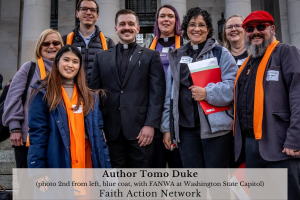
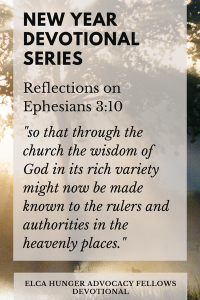
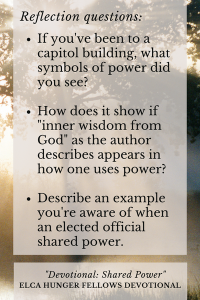

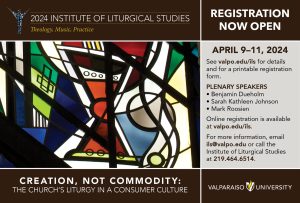
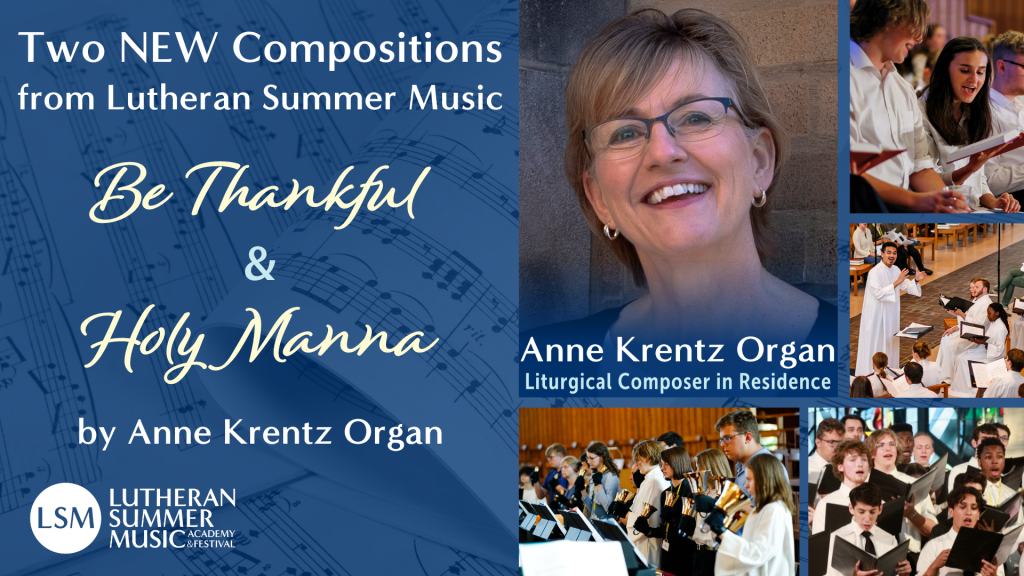


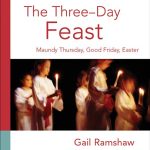
 Paschal Candles
Paschal Candles